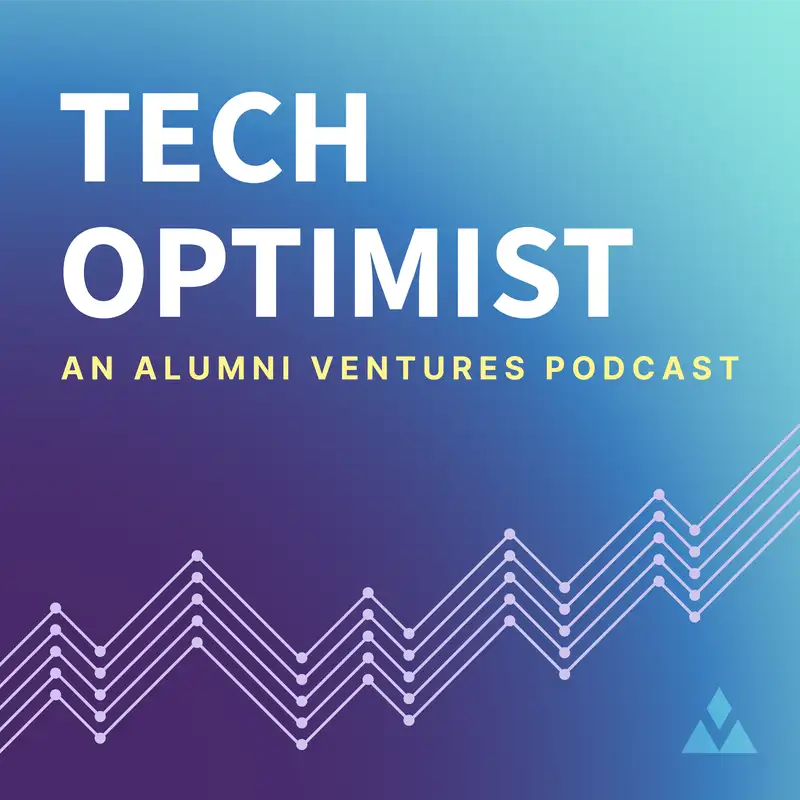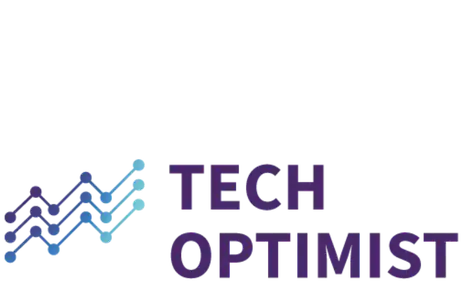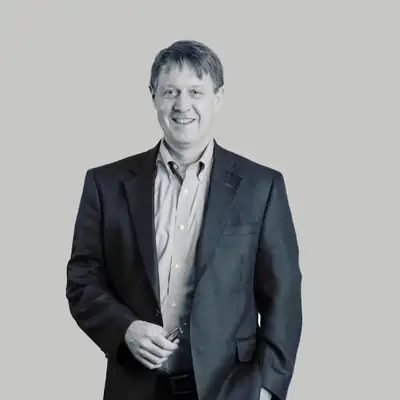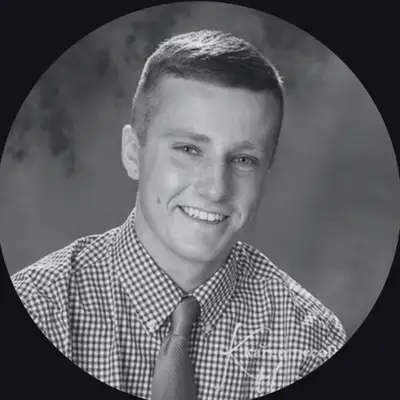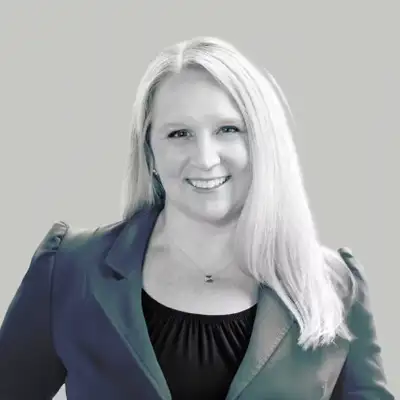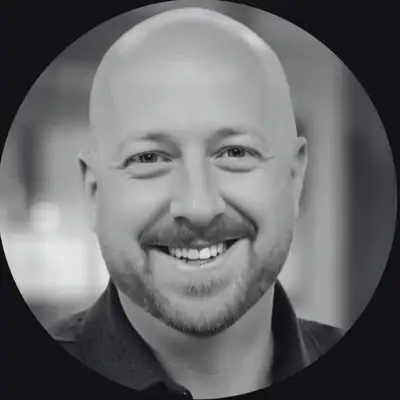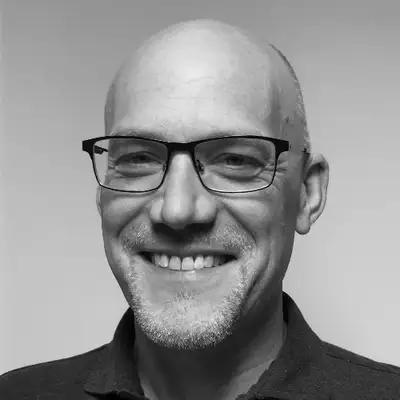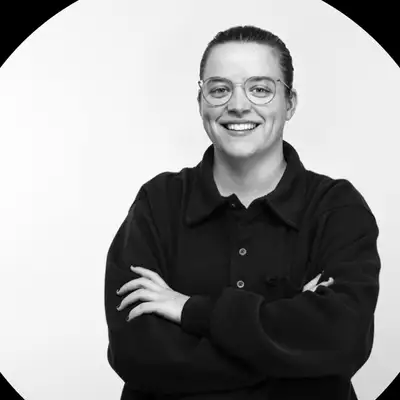#25 - Squads of AI Agents Acting on Your Behalf
Sam:
Do you know about AI agents? Word is we should. My name is Sam. This is The Tech Optimist.
Ron Bodkin:
What we're seeing is that the next step of evolution is creating agents, AI systems that can take action on behalf of users.
Mike Collins:
People will have an army of agents working together, working amongst themselves to get things done. For me, the pace of improvement here is really, really remarkable.
Ron Bodkin:
AI is moving so fast, and it's going to redefine careers.
Sam:
In a world captivated by criticism, it's easy to overlook the groundbreaking technologies shaping our future. Let's shine a light on innovators who are propelling us forward. As the most active venture capital firm in the US, we have an exceptional view of tech's real world impact. Join us as we explore, celebrate, and contribute to the stories of those creating tomorrow. Welcome to The Tech Optimist. As a reminder, The Tech Optimist Podcast is for the informational purposes only. It's not personalized advice, and it's not an offer to buy, or sell securities. For additional important details, please see the text description accompanying this episode.
Mike Collins:
Hi, and welcome to this episode of Alumni Ventures Tech Optimist Podcast. We're here with an AV portfolio company, Ron Bodkin. He's the CEO of Theoriq, and welcome to the show, Ron.
Ron Bodkin:
Thank you, Mike. It's a pleasure to be here.
Mike Collins:
So, you're in the AI space. For our audience, tell us a little bit about your company, and what do you guys do?
Ron Bodkin:
Yeah, so at Theoriq building a protocol, and marketplace for AI agents, you may have noticed that in the last few years, AI has really broken through with ChatGPT, and people are excited about how capable AI models are. What we're seeing is that the next step of evolution is creating agents, AI systems that can take action on behalf of users. And our big belief is that we're going to see specialized agents working together to accomplish better results for people than monolithic agents from big tech companies. So, we're excited to be building an ecosystem that developers, entrepreneurs can create, exciting agents that contribute, and help users, whether it's consumers, or businesses, really take advantage of AI.
Sam:
From Theoriq's website, Theoriq is a platform for limitless AI innovation built on the principles of compostability, extensibility, and community driven governance. Central tour ethos are transparency, and adaptability, Theoriq does not presume which branch of the evolutionary tree leads to the most beneficial AI. Rather, it strives to nurture the evolution itself.
Mike Collins:
So, people will have an army of agents working together, working amongst themselves to get things done. That's your vision.
Ron Bodkin:
To form collectives of, I don't know if I would necessarily call it an army. I mean collective, I guess-
Mike Collins:
Collective.
Ron Bodkin:
...across the entire ecosystem, there'll be an army of them, a squad of them coming together [inaudible 00:03:45] in the military analogy to do tasks. Yeah.
Mike Collins:
So, how about your background? What kind of led you to this point in time, and how did you get here, and what compelled you to start this business?
Ron Bodkin:
Yeah, I've been an entrepreneur most of my career back in relatively early in my career, I dropped out of the PhD program at MIT, was part of a team that reached the finals of the entrepreneurship competition, and decided to start a company we ended up taking public, helping businesses leverage the internet. More recently, the last 15 years I've been working in the AI space, whether it was at Quant cast that was applying AI, and ad tech building lookalike models, or starting my own company that I sold to Teradata, where I ended up as VP, and general manager of AI, integrating AI technology into their database. Then was at Google, working in the CTO office on applied AI. So, I've been working in the AI space a long time, and really felt that it was incredibly important that we come up with a way to allow more democratic access so that many people can contribute, and many people can benefit, and not have AI that was being controlled by a few giant companies, and decide for all of us how it's going to work.
Mike Collins:
Right. So, what do you think the public is underestimating when it comes to this, and maybe both sides of the coin, what do you think they're overestimating, and what do you think they're underestimating as far as AI?
Ron Bodkin:
Well, I think, in general, people are just dramatically underestimating the exponential improvement in AI, that the accumulation of progress is dramatic, and yet I see smart people writing articles all the time saying, well, AI is overblown. It hasn't completely changed the world in the 18 months since ChatGPT came out. So, it's being overestimated, and why is Nvidia worth three trillion dollars now? How could this be? Right? And so I think, generally, I think people are just underestimating the impact. I mean, I think sometimes you get that old quote from Bill Gates that people overestimate the impact of technology in the short term, and underestimate in the medium term.
Mike Collins:
I love that quote.
Ron Bodkin:
There are people that are out there saying... It's kind of buried in those comments like we expect after chat GPT that the next year everything would change. And in fact, I think when you look at it's really remarkable how quickly companies are already adopting AI that the first path of adoption is just general purpose chatbots, because it doesn't take any planning, and procurement, and coordination. Everyone could just do it individually, but we think that the next wave is people are taking, the models keep getting better, and they start having more integration with the data of an organization, and tools like writing code, and working together in these collectives that that's just going to blow the doors off in terms of how much AI is changing knowledge work.
Sam:
Don't go anywhere. We'll be right back.
Sophia Zhao:
Hey everyone, just taking a quick break, so I can tell you about the AI fund from Alumni Ventures. Alumni Ventures is one of the only VC firms focused on making venture capital accessible to individual investors like you. In fact, Alumni Ventures is one of the most active, and highly rated VC in the US, and we co-invest alongside renowned lead investors. With our AI fund, you'll have the opportunity to invest in a portfolio bill entirely around advancements in AI. This fund consists of 15 to 20 investments in multiple fields where AI is making a huge impact, including areas such as machine learning, healthcare, education, transportation, and more. To get started, visit us at av.vc/funds/aifund. Now, back to the show.
Mike Collins:
Yeah, I couldn't agree with you more, Ron. I mean, having been through some of these shifts for me, the pace of improvement here is really, really remarkable. I mean, you even think back to mobile, right? The smartphone cycle was incremental improvement, every iPhone model, if you will, every year, or two. What we're seeing in kind of rate of improvement, and quality, and cost, and model size is really, really remarkable. And again, I couldn't agree with you. Humans so think... We're so short term focused, and we're so linear where we just cannot comprehend geometric patterns very well out into the future, beyond our nose. So, yeah, I agree with you. Tell me a little bit about Theoriq, and where you are in your pretty early stage company, and where you are in your journey, and if there's an ask, or something that our community might be able to support you with.
Ron Bodkin:
Yeah, we've built a number of useful pieces, right? We've built an open source framework council for developing agents, and we've had agents in production to help with developer integration, generating code for customers like Space and Time, which is a database company. We've just announced Theoriq as a protocol in a marketplace, and we're working with a number of other Web3 companies like the File Coin Foundation, like Zero G, bringing agents, actually, Jack from Alumni Ventures had some great feedback about some of what we're doing in terms of agents that can help people tap into social sentiment, and understand news, and information about projects, and saying, "Hey, that could be really helpful in doing due diligence around projects."
So, that's something that we're excited to be working on too. So, basically we are working with these different communities, and to help them create really useful teams of agents that meet their needs, and we're just getting ready to go into our first test launch, our test act, which is scheduled for next month in July, and going to be working with more developers to help them build agents. So, we really want to empower a developer community, and make it easier to build agents that can start to get adoption, and usage, and feedback in this way.
Sam:
With this technology that Ron, and Theoriq does, I wanted to provide a little bit of context on what are some key features to this technology, and to the protocols that are within the agents that they create. So, this is all on their website at Theoriq.ai, but I figured I would sort of share some. So, an overview of their protocol key features are agentic primitives. Agentic primitives are the fundamental building blocks of the AI agents enabling dynamic, and autonomous decision-making within the framework. These primitives allow agents to act with purpose, and adaptability, handling complex tasks across decentralized networks without requiring centralized control. Then we can hop over to community permission governance. The governance model empowers the community by involving them directly in decision making processes. Through token based governance, or decentralized autonomous organizations, in the future, stakeholders have a say in proposals affecting the platform's development, and management, ensuring that it evolves in line with the community's interests, and values. Enabling seamless integration, and interchangeability of models.
This design allows developers to effortlessly tailor, and scale their AI applications using the infrastructure fostering an environment of innovation, and customization. Lastly, we have fair value distribution, equitable value distribution across all contributors to the Theoriq ecosystem. Whether developers, data providers, or users transparent algorithmic mechanisms ensure that rewards are proportionately distributed according to the value contributed, maintaining fairness, and incentivizing meaningful participation.
Ron Bodkin:
So, yeah, I mean, our plan is to get that test launched next month, and then later in the summer to get the first release out. And we think that there's going to be a ton of interesting use cases around AI agents. So, we're always excited to hear both from people building agents who think being part of a more open ecosystem rather than trying to build in a walled garden is a good direction. I think most people recognize even if Open AI has been an early leader, that it's really risky to build, and depend on them, that they've been faster to kill startups building on their platform than any other technology wave before. So, I think that's probably one of the big assets agent developers who are excited about that more open vision. We'd love to connect with them, and people that would love to take advantage of agents, and apply them.
Mike Collins:
Yeah, I mean, I think part of our bet was we just believe that there's going to be an open alternative here when it comes to AI. I just think that that's a really good bet. And I also think an ecosystem of modular components that do little things really, really well, and then can be linked together. Again, I think people saw that with Apple Computer in the app store in a very proprietary walled garden approach, and I do think again, we're going to probably see both ecosystems exist, and work with one of probably the biggest technology waves of our lifetime. So, there's going to be plenty of room for lots of players to participate, and win, I think.
Ron Bodkin:
Yeah, I mean, certainly, if you think that businesses are struggling when Apple, and Google with their app stores are taking 30% of their revenue, imagine when AI is the central technology in the economy. If a few monopolists are controlling, and imposing an arbitrary tax on all that work that's being done, it's a really bad outcome.
Mike Collins:
Yeah. So, just changing gears for a second, I mean, you've been a successful entrepreneur, you've seen a lot of patterns. There's a lot of people in our audience that are more at the beginning of their career, either working at a startup, or thinking of starting a startup. What's one bit of advice that you got, or wish you had received when you were starting out that you could pass along to some of our listeners out there?
Ron Bodkin:
Well, I think a thing that's been really interesting through my career is to see both how much the craft, and facet knowledge of entrepreneurship has become better known. When I was at MIT, I went to some classes on entrepreneurship, and got some mentoring from people like Brad Feld, who's a famous investor early in his career as an investor. So, I benefited from some of that, but a lot of it was way less well understood. So, whether you look at, I think Steve Blank's writing is probably underappreciated. I think it's better known in terms of Lean Startup, which applied it, but more in a consumer way. Whereas I think a lot of times when you're doing a B2B startup, or where it's not about large scale adoption by end users, it's a different playbook.
So, I think those are useful things. But I guess the other thing that I think is really interesting is the pace of innovation. Things are moving so fast that the market is discovering ways like it's now so important to fight for thought leadership, and there's more capital available, and sort of inevitably winners are winning faster, and getting access to unbelievable amounts of capital. And so in that way, the game has changed dramatically. Think about how many companies are raising a hundred million dollars seed rounds. The idea of a hundred million dollars seed round just wasn't a thing early in my career. So, the stakes are higher, and it changes the practices a bit, right?
Sam:
We'll be back in 30 seconds.
Speaker 6:
Ever wonder how the ultra wealthy invest their money? They often back startups before they go public through venture capital. Now individual investors like you can too with Alumni Ventures, visit av.vc to get started.
Ron Bodkin:
So, yeah, I mean, I think those are all maybe pointers I would point to. I guess the other thing I'd say is I think for a lot of people who are excited about being an entrepreneur, it's a good move to actually go work at a relatively early stage startup with experienced entrepreneurs running it rather than your first job out of school is to be an entrepreneur. Maybe it could be your second job after you've learned some of the craft from working at a place where there's a team doing it.
Mike Collins:
Yeah, no, I tell young people that the exact same advice, Ron. I think there's actually even an optimal size, I don't know, 50 to 150 employees where it's definitely entrepreneurial. It's definitely fast moving. You definitely can get a lot of responsibility, and shine, but it is not so small, and so scrappy that there's just no time, or ability to mentor anyone, or bring someone along when they're early in their career. So, yeah, I think depends on where you are in your career, but I do think your first job should probably not be as an entrepreneur.
Ron Bodkin:
Yeah, the only thing I'd say that's countervailing to that, which has been my view for a long time is AI is moving so fast, and it's going to redefine careers. So, there's a little bit of yolo, which is like you may need to move fast, and do things in your career quickly because the game board is changing so fast that in 10 years, I don't know what the economy looks like.
Mike Collins:
Yeah. I think that is a great point, and I also think the ability of a very small number of people to do remarkable things has been going down consistently, and this is just another amplification of what a handful of people with a little bit of money, and a lot of smarts, and hard work can accomplish. I think there's a lot of things going on that the rules are changing pretty damn quickly here. I mean, I was talking to another startup earlier, and it's like for 30 years, people have been trying to disrupt education. People have been trying to disrupt healthcare, and really with limited success, a few things around the edges, but I don't know.
I think things could change a lot in the next 10 years, and a lot of monopolies, and kind of industries that were sacrosanct, and untouchable. I think everything's up for grabs. Everything's up for grabs right now. So exciting times. Really excited to be part of your company, your progress. Again, people that are interested in your work will put things in the show notes, have people get in touch. Again, we really love your approach. It's early. It's a chance to have impact. The company's small enough where you're going to get a lot of love, and attention. Reach out Theoriq for sure. And Ron, we wish you the best, and look to participate in your next round.
Ron Bodkin:
Thank you, Mike. We certainly appreciate support, and great chatting with you today.
Mike Collins:
Excellent. Enjoy your weekend, Ron. Take care.
Ron Bodkin:
Bye.
Mike Collins:
Bye.
Sam:
Thanks again for tuning into The Tech Optimist. If you enjoyed this episode, we'd really appreciate it if you'd give us a rating on whichever podcast app you're using, and remember to subscribe to Keep up with each episode. The Tech Optimist welcomes any questions, comments, or segment suggestions. So, please email us at info@techoptimist.vc with any of those, and be sure to visit our website at av.vc. As always, keep building.
